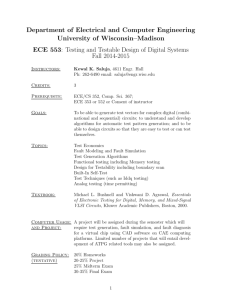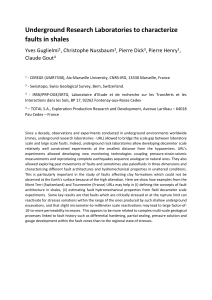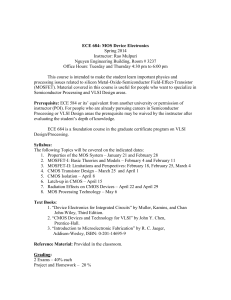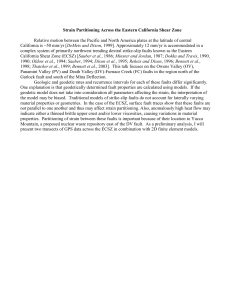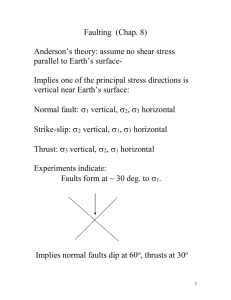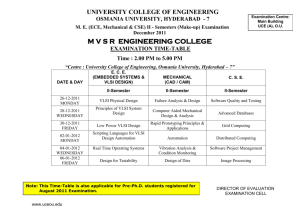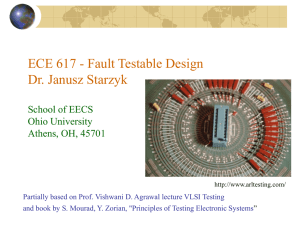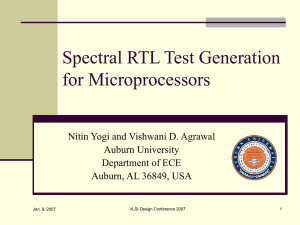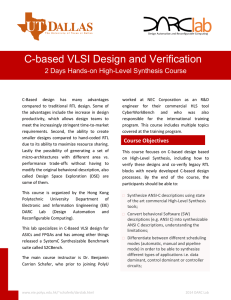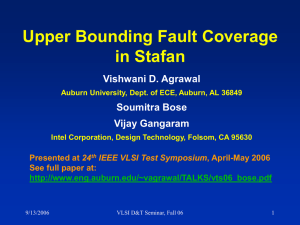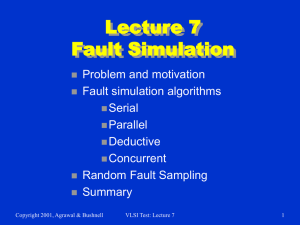Stratified Sampling for Fault Coverage of VLSI Systems
advertisement
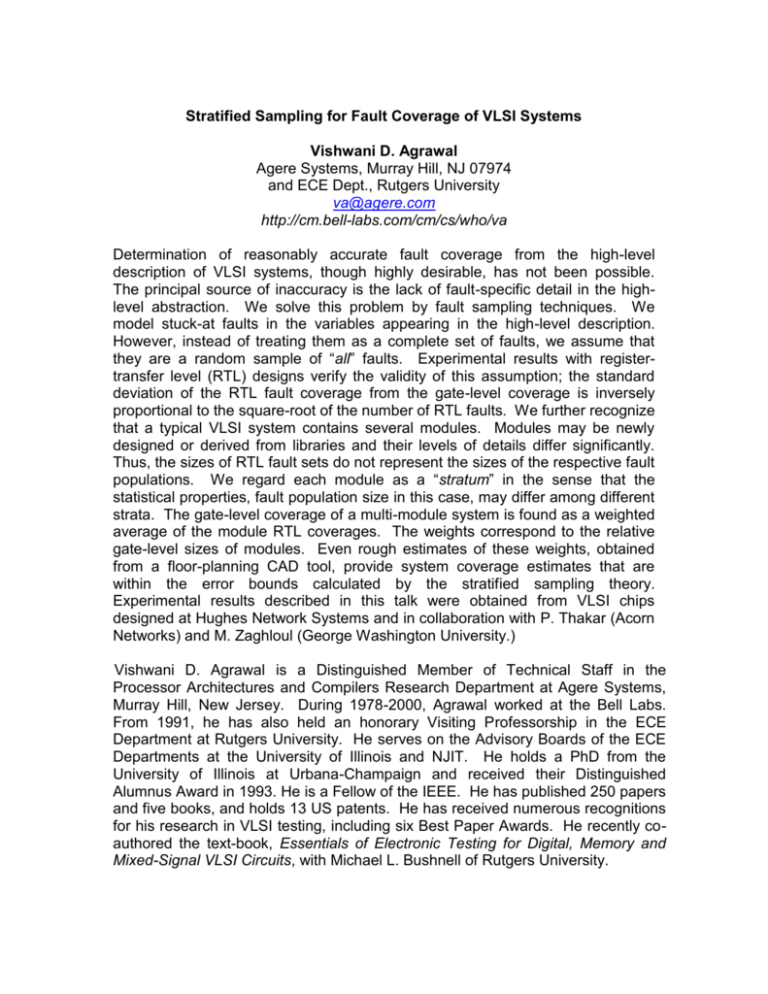
Stratified Sampling for Fault Coverage of VLSI Systems Vishwani D. Agrawal Agere Systems, Murray Hill, NJ 07974 and ECE Dept., Rutgers University va@agere.com http://cm.bell-labs.com/cm/cs/who/va Determination of reasonably accurate fault coverage from the high-level description of VLSI systems, though highly desirable, has not been possible. The principal source of inaccuracy is the lack of fault-specific detail in the highlevel abstraction. We solve this problem by fault sampling techniques. We model stuck-at faults in the variables appearing in the high-level description. However, instead of treating them as a complete set of faults, we assume that they are a random sample of “all” faults. Experimental results with registertransfer level (RTL) designs verify the validity of this assumption; the standard deviation of the RTL fault coverage from the gate-level coverage is inversely proportional to the square-root of the number of RTL faults. We further recognize that a typical VLSI system contains several modules. Modules may be newly designed or derived from libraries and their levels of details differ significantly. Thus, the sizes of RTL fault sets do not represent the sizes of the respective fault populations. We regard each module as a “stratum” in the sense that the statistical properties, fault population size in this case, may differ among different strata. The gate-level coverage of a multi-module system is found as a weighted average of the module RTL coverages. The weights correspond to the relative gate-level sizes of modules. Even rough estimates of these weights, obtained from a floor-planning CAD tool, provide system coverage estimates that are within the error bounds calculated by the stratified sampling theory. Experimental results described in this talk were obtained from VLSI chips designed at Hughes Network Systems and in collaboration with P. Thakar (Acorn Networks) and M. Zaghloul (George Washington University.) Vishwani D. Agrawal is a Distinguished Member of Technical Staff in the Processor Architectures and Compilers Research Department at Agere Systems, Murray Hill, New Jersey. During 1978-2000, Agrawal worked at the Bell Labs. From 1991, he has also held an honorary Visiting Professorship in the ECE Department at Rutgers University. He serves on the Advisory Boards of the ECE Departments at the University of Illinois and NJIT. He holds a PhD from the University of Illinois at Urbana-Champaign and received their Distinguished Alumnus Award in 1993. He is a Fellow of the IEEE. He has published 250 papers and five books, and holds 13 US patents. He has received numerous recognitions for his research in VLSI testing, including six Best Paper Awards. He recently coauthored the text-book, Essentials of Electronic Testing for Digital, Memory and Mixed-Signal VLSI Circuits, with Michael L. Bushnell of Rutgers University.
